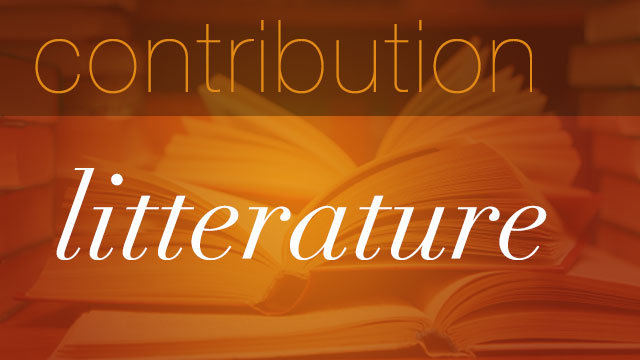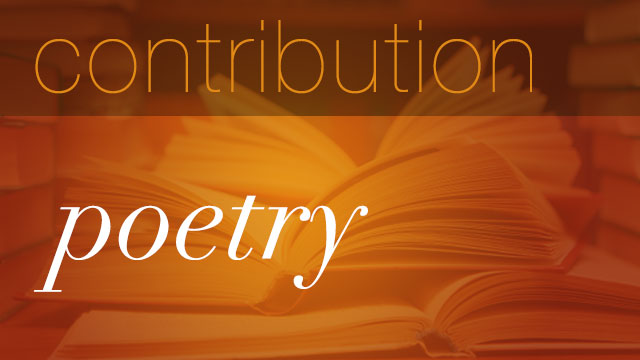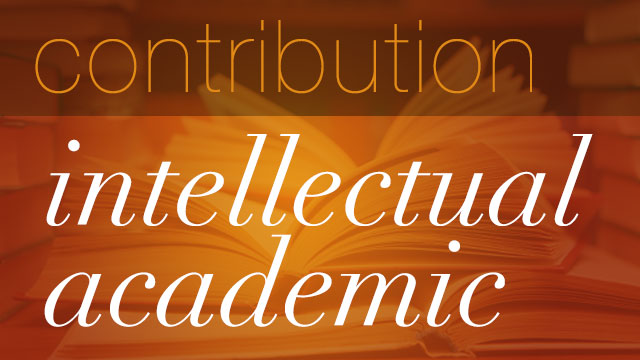“All opinions are that of the author and not necessarily those of the website that it is published under.”
In the middle of Hijaz (a region in western Arabia) lived the powerful tribe of Quraysh, the Keeper of Keys. Quraysh were primarily responsible for the affairs related to pilgrimage, which Arabs from all over Arabia made to Ka’ba. Not the Ka’ba that we know of today, the house of Allah where around three million Muslims come every year for the Islamic ritual of Hajj. Ka’ba at that time was the sanctuary where all the idols of Arabia were housed, especially after Quraysh became the Keeper of Keys. If anyone wanted to worship any particular god, one could do so only at Mecca. Because of the heavy influx of pilgrims from all over Arabia to Mecca for pilgrimage, Mecca also became a place for economic activity. Quraysh encouraged these pilgrims to benefit from the peaceful environment of Mecca. Thus, Mecca, formerly a deserted metropolis, now served two purposes: Mecca, a sight for pilgrimage and Mecca, a place for business activity.
Prophet Muhammad’s, may God be pleased with him, clan was known as Banu Hashim, meaning “Sons of Hashim”. It was a small but nonetheless a prestigious clan within the powerful tribe of Quraysh. By the age of 25, Muhammad, may God be pleased with him, was on his way to become a settled businessman. He married Khadija, may God be pleased with her, who was then a successful businesswoman and, according to scholarly accounts, “was pursued by many men, most whom would have loved to get their hands on her money”. Khadija, may God be pleased with her, married Muhammad, may God be pleased with him, for two reasons: Firstly, Muhammad, may God be pleased with him, was by that time widely known for his ‘truthfulness, reliability, and nobility of character’. Apart from that, Khadija, may God be pleased with her, knowing these characteristics of his had made him lead one of his special caravans to Syria. Prophet, may God be pleased with him, returned with double the profits than what Khadija had expected. She offered Prophet, may God be pleased with him, to marry her which he accepted. It was an odd happening in the then tribal culture of Arab as Khadija, may God be pleased with her, was 15 years older than Prophet, may God be pleased with him.
Thriving business, rich wife and strong connections with the most powerful clan of the time, Muhammad, may God be pleased with him, must have been aiming at a peaceful, settled life.
But, what went wrong?
Within a span of a decade, Quraysh are thirsty of his blood, he is quitting the town where he has lived his entire life, no other clan is giving him refuge, and he is planning to escape the wrath of Quraysh because he has become a threat to their economic well-being. Why? Because the al-nabbi al ummi, “the unlettered Prophet”, is reciting the words of God which he has received as revelation; the words so poetic that till this day Quran is considered the best of Arabic literature. Age old debates on revelation and Quran aside, can an unlettered man have a prowess of a poet, let alone the kind of poetry that becomes the best literary work ever?
In Yathrib (now called Medina), Prophet introduced reforms that the Bedouins of Arabia could not have dreamed of. In the seventh century B.C, Prophet, may God be pleased with him, was instituting in the deserted Arabia ideals such social egalitarianism, popular sovereignty, the struggle for justice, the provisions of social welfare such as care for the poor and marginalized, and the pursuit and preservation of knowledge. The basis of democratic polity was in: shura, consultation, as popular representation; in ijma, consensus, as political participation; in bay’ah, allegiance, as universal suffrage.
These “modern” ideas are not the new discoveries for Muslims. They existed at the time of Caliphs and The Rightly Guided Ones, fully functioning. People rejected Islam is early days, not because it was too revolutionary, because it was too modern, in fact.
Many people often cite the example of Saudi Arabia as a representative of Islam because of being the birthplace of Islam. Hardly can anything be more naïve than this. This claim was answered in a rather funny way by Mehdi Hasan, a prominent British journalist, political editor of New Statesman and host of the famous show Head to Head. In a debate at Oxford Union, called Islam is a Religion of Peace, when one of the speakers from the opposition, Anne Marie, tried to equate Saudi Arabia with Islam, saying Islam was born in Saudi Arabia, Mehdi replied and I quote: “Islam was born in 610 A.D. Saudi Arabia was born in 1932 A.D. So, you are only one thousand, three hundred and twenty two years off. Not bad? Not bad start there.”
The two holy cities, Mecca and Medina, were not part of Saudi Arabia until Saudi Arabia was created in 1932 by Ibn Saud. They were under Ottoman Empire before that. Both the cities were also, at one time, ruled under the Sharif of Mecca, who owed his allegiance to one of the rulers of major Muslim empires in Baghdad, Istanbul, or Cairo.
Long story short, Saudi Arabia, is a Salafist country ruled by monarchs and whose ideology is predominantly Wahabism, an ideology that was preached by Muhammad ibn Abd al-Wahhab (1703-66) at the time as late as eighteenth century. Monarchy has no roots in prophetic tradition. In fact, in early Arabia the action of ruler passing down power to his son was considered a contemptible act. Abu Bakar, Umar, and Usman who succeeded Muhammad, may God be pleased with them, were not from Banu Hashim, the clan of Prophet. All the appointments were made by shura, the assembly.
The ideals of democracy were present in Islam since its birth. And, as most sophisticated scholars have insisted, it will be naïve to compare the democratic processes that Islam instituted in Arabia in seventh century and the processes of democracy in 21st century A.D. As it will be equally naïve to compare democracy of Athens with any modern day democracy. And, it will be rather naïve to compare democracy of eighteenth century America and 21st century America, or Britain.
Question today is of Islamic reformation. Tariq Ramadan, the professor of Contemporary Islamic Studies in the Faculty of Oriental Studies at the University of Oxford and also teaches at the Oxford Faculty of Theology, one of the most prominent Muslim voices in West today, believes that it is Muslim mind that needs reformation as opposed to Islam itself. According to him, the problem is with the interpretation. Sheikh Hamza Yusuf, a prominent American Islamic scholar, believes that Islam needs “renovation” as opposed to “reformation”, considering that the fundamentals of religion are sound, however the building constructed over it needs to be renovated. Reza Aslan, bestselling American author and religious scholars, criticizes the role Ulama have played in interpreting Islam and refocuses attention on the ‘crisis of authority’ within Islam. The result of this crisis has been that, as Aslan puts it in his best-seller No god but God: “Some have used this radical creed to develop wholly new interpretations of Islam that foster pluralism, individualism, modernism, and democracy; other have used it to propound an equally new ideal of Islam that calls for intolerance, bigotry, militancy, and perpetual war. “
What is needed in Muslim majority countries today is education, which the then “Christian West” deprived them in the name of ‘God and empire’ during its colonization of these countries. However, by any stretch of imagination I do not think that religion was the sole reason behind colonization. Jesus did not ask them colonize. Queen did. (Apparently!) The same way, I do not think that Islam, in its entirety, is the reason behind ISIS or al-Qaeda or the self-declared caliphs of today.
Democracies, as Reza Aslan says and I concur, will nurture from within these Muslim majority countries. These democracies will not be the same as Western democracies but will rather show the socio-political and other demographics of the respective societies. Prominent example in modern times is of a very Jewish democracy in Israel as has been noted by Aslan in his book No god but God. Writing about democracy in Israel he says: “a country founded upon an exclusivist moral Jewish framework, which offers all the world’s Jews- regardless of their nationality- immediate citizenship, providing them with a host of material benefits and privileges over its non-Jewish citizens; where Orthodox rabbinical courts have jurisdiction over all matters relating to Judaism (including who is and who is not Jew); where religious schools (yeshivas) are subsidized by the state, and marriages are religious rather than civil affairs (meaning no official will marry a Jew to a non-Jew); and where all new citizens regardless of their religious affiliation, are required to take a loyalty oath affirming Israel’s identity as a “Jewish state.” By every definition of the term, Israel is a “Jewish democracy.”
Separation of temporal and religious powers is another important question. I hope to write a complete new article on this particular topic. But, it must be at least noted here that Caliphate in Islam is not a religious authority. It is a political one. Religious head is distinct from political authority in Islam. However, this is a controversial topic and shall be explained in its entirety.
Why democracy, the kind of democracy West envisions, has failed in Muslim majority countries has a lot to do with their political and social histories than with Islam. Before dismissing democracy’s compatibility with Islam and Muslim majority countries, one should for the sake of reason, take into account the demographics of populations of these countries, their current ruling elites, their systems of democracy, their geographical locations and the development of religion in these regions. For the benefit of the reader, it must be noted here that Muslim majority countries should not be confused with Middle East. Middle East hardly represents 20% of Muslims of the world.
But, wait a minute, does west really want democracy in Muslim majority countries?
Excite yourselves!
“All opinions are that of the author and not necessarily those of the website that it is published under.”





